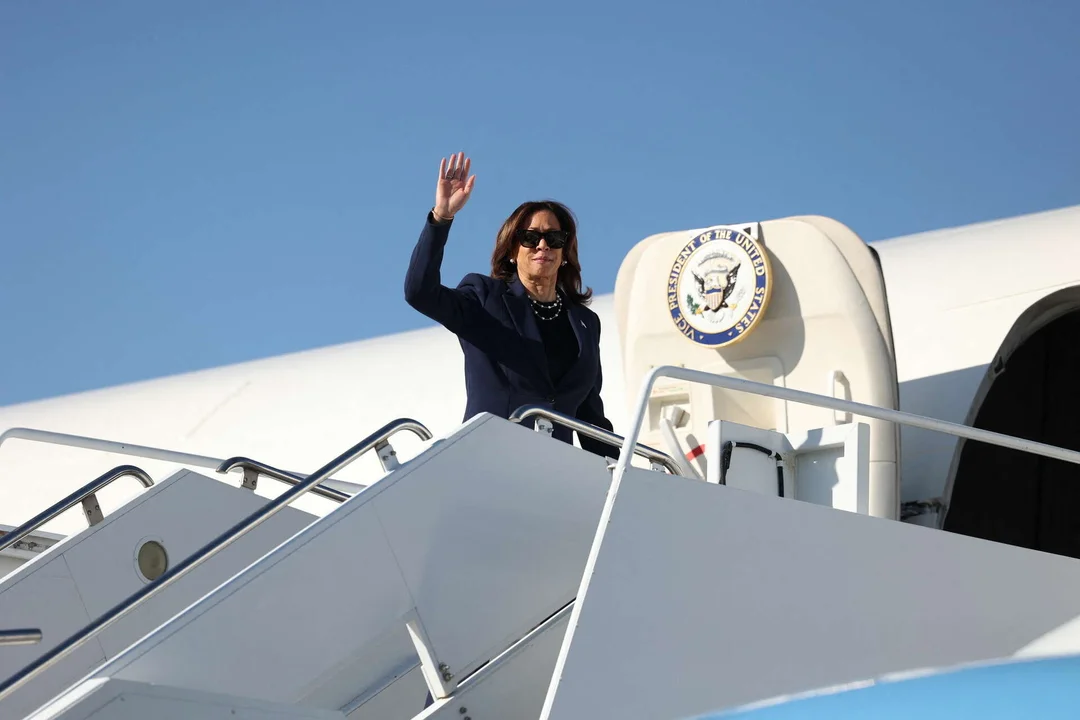
Will Kamala Harris Enter the Race? Insights from Recent Polls Spark Debate
As speculation mounts about Kamala Harris's potential candidacy for California governor in 2026, recent polling data reveals a divided electorate on her emerging role. Although Harris leads in hypothetical matchups, half of voters question whether she should even run.
A survey conducted by Emerson College Polling in collaboration with Inside California Politics found that Harris enjoys 31% support among likely voters if she enters the fray. This is significantly ahead of her nearest competitor, former Congresswoman Katie Porter, who captures just 8%. Yet, a startling 50% of voters expressed reservations about Harris's entering the race, reflecting a complex relationship between the former Vice President and constituents. "How competitive the 2026 gubernatorial primary in California is depends on whether Harris runs," remarked Spencer Kimball, executive director of Emerson College Polling.

This duality in voter sentiment is echoed in various polls that portray the uncertainties regarding Harris's maneuvering in California's political landscape. While she’s seen as the frontrunner, opinions are lukewarm regarding her potential candidacy. Notably, among registered voters, there is a noticeable contrast: 33% feel "joyful" at the prospect of Harris running, while only 4% expressed outright outrage.
The dynamics of Harris's potential candidacy come with layered implications. Among Democratic voters, enthusiasm appears concentrated, particularly within the party's base. In marked contrast, independent voters show hesitance, with 26% expressing irritation at the thought of Harris running. Furthermore, other groups like Latino and Asian American voters display mixed emotions, shedding light on the challenges Harris faces in forging a united coalition.
Notably, the survey indicates how Harris's decision, or indecision, affects the trajectories of other contenders like Porter, who could gain ground should Harris not enter the ring. Porter’s support among Democrats could potentially jump from 13% to 21% in Harris's absence, demonstrating how just a single candidate’s decision can alter the landscape entirely.
Despite appearances of strength, political analysts like Mike Murphy suggest that Harris may have vulnerabilities that could be capitalized on by opponents. "If I were a rival Democrat, I’d look at those numbers and see that while she starts ahead, she is susceptible to a well-executed campaign," he noted. His comments are reinforced by calls from fellow challengers emphasizing the need for a candidate who is not just politically popular but also deeply appreciative of the pressing issues facing Californian voters today, such as the high cost of living and homelessness.
As the clock ticks towards her self-imposed deadline for making a decision by summer's end, the entire state political landscape appears to hold its breath. Harris’s potential entry could serve to consolidate or shatter existing ambitions much like a chess game, with each candidate reassessing their strategies based on her ultimate move.
In conclusion, as Kamala Harris weighs her options, the mixed sentiments among voters reflect a pivotal moment in California's politics. Are voters ready for her to reclaim a leadership role, or is it time for new contenders to engage in the fray? The upcoming months promise to be revealing as the race for California governor heats up.
What are your thoughts on Harris’s possible candidacy? Does she have what it takes to lead California, or is it time for a new face in the governor's office? Share your views in the comments below.